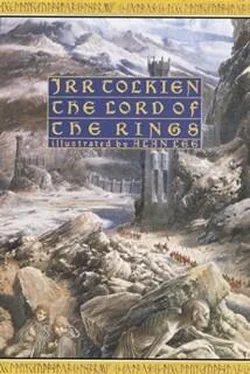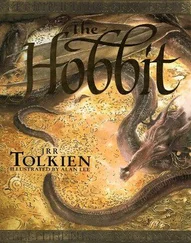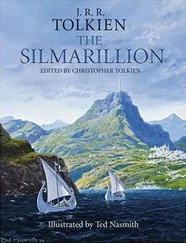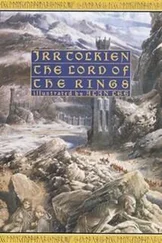John Tolkien - The Return of the King
Здесь есть возможность читать онлайн «John Tolkien - The Return of the King» весь текст электронной книги совершенно бесплатно (целиком полную версию без сокращений). В некоторых случаях можно слушать аудио, скачать через торрент в формате fb2 и присутствует краткое содержание. Жанр: Фэнтези, на английском языке. Описание произведения, (предисловие) а так же отзывы посетителей доступны на портале библиотеки ЛибКат.
- Название:The Return of the King
- Автор:
- Жанр:
- Год:неизвестен
- ISBN:нет данных
- Рейтинг книги:5 / 5. Голосов: 1
-
Избранное:Добавить в избранное
- Отзывы:
-
Ваша оценка:
- 100
- 1
- 2
- 3
- 4
- 5
The Return of the King: краткое содержание, описание и аннотация
Предлагаем к чтению аннотацию, описание, краткое содержание или предисловие (зависит от того, что написал сам автор книги «The Return of the King»). Если вы не нашли необходимую информацию о книге — напишите в комментариях, мы постараемся отыскать её.
The Return of the King — читать онлайн бесплатно полную книгу (весь текст) целиком
Ниже представлен текст книги, разбитый по страницам. Система сохранения места последней прочитанной страницы, позволяет с удобством читать онлайн бесплатно книгу «The Return of the King», без необходимости каждый раз заново искать на чём Вы остановились. Поставьте закладку, и сможете в любой момент перейти на страницу, на которой закончили чтение.
Интервал:
Закладка:
It was even as Gandalf sat and pondered this that Thorin stood before him, and said: 'Master Gandalf, I know you only by sight, but now I should be glad to speak with you. For you have often come into my thoughts of late, as if I were bidden to seek you. Indeed I should have done so, if I had known where to find you.'
Gandalf looked at him with wonder. 'That is strange, Thorin Oakenshield,' he said. 'For I have thought of you also; and though I am on my way to the Shire, it was in my mind that is the way also to your halls.'
'Call them so, if you will,' said Thorin. 'They are only poor lodgings in exile. But you would be welcome there, if you would come. For they say that you are wise and know more than any other of what goes on in the world; and I have much on my mind and would be glad of your counsel.'
'I will come,' said Gandalf; 'for I guess that we share one trouble at least. The Dragon of Erebor is on my mind, and I do not think that he will be forgotten by the grandson of Thrór.'
The story is told elsewhere of what came of that meeting: of the strange plan that Gandalf made for the help of Thorin, and how Thorin and his companions set out from the Shire on the quest of the Lonely Mountain that came to great ends unforeseen. Here only those things are recalled that directly concern Durin's Folk.
The Dragon was slain by Bard of Esgaroth, but there was battle in Dale. For the Orcs came down upon Erebor as soon as they heard of the return of the Dwarves; and they were led by Bolg, son of that Azog whom Dáin slew in his youth. In that first Battle of Dale, Thorin Oakenshield was mortally wounded; and he died and was laid in a tomb under the Mountain with the Arkenstone upon his breast. There fell also Fíli and Kíli, his sister-sons. But Dáin Ironfoot, his cousin, who came from the Iron Hills to his aid and was also his rightful heir, became then King Dáin II, and the Kingdom under the Mountain was restored, even as Gandalf had desired. Dáin proved a great and wise king, and the Dwarves prospered and grew strong again in his day.
In the late summer of that same year (2941) Gandalf had at last prevailed upon Saruman and the White Council to attack Dol Guldur, and Sauron retreated and went to Mordor, there to be secure, as he thought, from all his enemies. So it was that when the War came at last the main assault was turned southwards; yet even so with his far-stretched right hand Sauron might have done great evil in the North, if King Dáin and King Brand had not stood in his path. Even as Gandalf said afterwards to Frodo and Gimli, when they dwelt together for a time in Minas Tirith. Not long before news had come to Gondor of events far away.
'I grieved at the fall of Thorin,' said Gandalf; 'and now we hear that Dáin has fallen, fighting in Dale again, even while we fought here. I should call that a heavy loss, if it was not a wonder rather that in his great age he could still wield his axe as mightily as they say that he did, standing over the body of King Brand before the Gate of Erebor until the darkness fell.
'Yet things might have gone far otherwise and far worse. When you think of the great Battle of the Pelennor, do not forget the battles in Dale and the valour of Durin's Folk. Think of what might have been. Dragon-fire and savage swords in Eriador, night in Rivendell. There might be no Queen in Gondor. We might now hope to return from the victory here only to ruin and ash. But that has been averted – because I met Thorin Oakenshield one evening on the edge of spring in Bree. A chance-meeting, as we say in Middle-earth.'
Dís was the daughter of Thráin II. She is the only dwarf-woman named in these histories. It was said by Gimli that there are few dwarf-women, probably no more than a third of the whole people. They seldom walk abroad except at great need, They are in voice and appearance, and in garb if they must go on a journey, so like to the dwarf-men that the eyes and ears of other peoples cannot tell them apart. This has given rise to the foolish opinion among Men that there are no dwarf-women, and that the Dwarves 'grow out of stone'.
It is because of the fewness of women among them that the kind of the Dwarves increases slowly, and is in peril when they have no secure dwellings. For Dwarves take only one wife or husband each in their lives, and are jealous, as in all matters of their rights. The number of dwarf-men that marry is actually less than one-third. For not all the women take husbands: some desire none; some desire one that they cannot get, and so will have no other. As for the men, very many also do not desire marriage, being engrossed in their crafts.
Gimli Glóin's son is renowned, for he was one of the Nine Walkers that set out with the Ring; and he remained in the company of King Elessar throughout the War. He was named Elf-friend because of the great love that grew between him and Legolas, son of King Thranduil, and because of his reverence for the Lady Galadriel.
After the fall of Sauron, Gimli brought south a part of the Dwarf-folk of Erebor, and he became Lord of the Glittering Caves. He and his people did great works in Gondor and Rohan. For Minas Tirith they forged gates of mithril and steel to replace those broken by the Witch-king. Legolas his friend also brought south Elves out of Greenwood, and they dwelt in Ithilien, and it became once again the fairest country in all the westlands.
But when King Elessar gave up his life Legolas followed at last the desire of his heart and sailed over Sea.
We have heard tell that Legolas took Gimli Glóin's son with him because of their great friendship, greater than any that has been between Elf and Dwarf. If this is true, then it is strange indeed: that a Dwarf should be willing to leave Middle-earth for any love, or that the Eldar should receive him, or that the Lords of the West should permit it. But it is said that Gimli went also out of desire to see again the beauty of Galadriel; and it may be that she, being mighty among the Eldar, obtained this grace for him. More cannot be said of this matter.
APPENDIX B
THE TALE OF YEARS
(Chronology of the Westlands)
The First Age ended with the Great Battle, in which the Host of Valinor broke Thangorodrim 50 50 I , 54.
and overthrew Morgoth. Then most of the Noldor returned into the Far West 51 51 II, 54; The Hobbit , 162
and dwelt in Eressëa within sight of Valinor; and many of the Sindar went over Sea also.
The Second Age ended with the first overthrow of Sauron, servant of Morgoth, and the taking of the One Ring.
The Third Age came to its end in the War of the Ring; but the Fourth Age was not held to have begun until Master Elrond departed, and the time was come for the dominion of Men and the decline of all other 'speaking-peoples' in Middle-earth. 52 52 III, 54.
In the Fourth Age the earlier ages were often called the Elder Days; but that name was properly given only to the days before the casting out of Morgoth. The histories of that time are not recorded here.
These were the dark years for Men of Middle-earth, but the years of the glory of Númenor. Of events in Middle-earth the records are few and brief, and their dates are often uncertain.
In the beginning of this age many of the High Elves still remained. Most of these dwelt in Lindon west of the Ered Luin; but before the building of the Barad-dûr many of the Sindar passed eastward, and some established realms in the forests far away, where their people were mostly Silvan Elves. Thranduil, king in the north of Greenwood the Great, was one of these. In Lindon north of the Lune dwelt Gil-galad, last heir of the kings of the Noldor in exile. He was acknowledged as High King of the Elves of the West. In Lindon south of the Lune dwelt for a time Celeborn, kinsman of Thingol; his wife was Galadriel, greatest of Elven women. She was sister of Finrod Felagund, Friend-of-Men, once king of Nargothrond, who gave his life to save Beren son of Barahir.
Читать дальшеИнтервал:
Закладка:
Похожие книги на «The Return of the King»
Представляем Вашему вниманию похожие книги на «The Return of the King» списком для выбора. Мы отобрали схожую по названию и смыслу литературу в надежде предоставить читателям больше вариантов отыскать новые, интересные, ещё непрочитанные произведения.
Обсуждение, отзывы о книге «The Return of the King» и просто собственные мнения читателей. Оставьте ваши комментарии, напишите, что Вы думаете о произведении, его смысле или главных героях. Укажите что конкретно понравилось, а что нет, и почему Вы так считаете.












